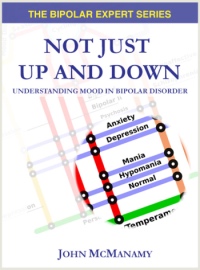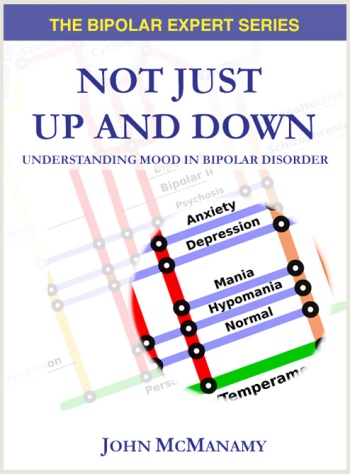Consumer? Call Me Crazy, Instead
 |
In the real world, companies actually listen to consumers. Do you see that happening in mental health?
|
Crazy is OK. Consumer is not. In 2010, on my blog Knowledge is Necessity, I ran a poll that sought your opinion on the term, "crazy.” Contrary to conventional wisdom, only one in four of you replied that “the term is highly stigmatic.” By contrast, four in ten let me know, “it’s better to be crazy than an asshole” while three in ten informed me, "screw being PC. You should see me when I'm crazy."
My New Book!

Purchase now.
I would be the first to acknowledge that “crazy” used in a thoughtless and hurtful way is deeply offensive, but I have far stronger objections to that other term foisted on us to describe individuals living with a mental illness, and, I suspect, so do you. Let’s get started ...
Consumer
If I ever come across the sanctimonious bastard responsible for inflicting this sorry piece of the Indo-European language group on us, I swear I will show him no mercy. I will abduct him off the street, chain him to a chair in a room of Thomas Kinkade paintings, and force him to listen to Frank Sinatra singing Leaving On a Jet Plane.
The term, we are told, came from the mental health movement. Really? Do you think we would actually choose the same word used to describe shoppers going comparison shopping for mouthwash at Walmart? You’d have to be crazy to believe that.
As if we actually had the option to go comparison shopping in the first place. Joke: How do you make a mental health administrator laugh? Tell her you want to get well and stay well.
Really, what choice in services to we actually have?
To go with the mouthwash example: Companies that market products and services actually listen to their customers - those who consume. They do surveys, they run focus groups. They seek to anticipate the consumer’s needs and wants, then they come up with a product they hope will deliver, such as vanilla-flavored mouthwash. Then they go back and check if this same population of morning-garglers had positive experiences contending with a disinfectant laced with a cake icing ingredient.
Tell me, when was the last time someone invited you to participate in a Risperdal or Abilify focus group? When was the last time your psychiatrist asked you to fill in a customer satisfaction survey?
Consumer? Ha!
One More Thing
Consumer is all about taking and not giving. Is that us? Ingrates who suck the rest of this planet dry? Don’t we actually have something to offer humanity? Such as perhaps the Sistine Chapel, the Choral Symphony, Great Expectations, the discovery of the laws of gravity, the Federalist Papers, the Emancipation Proclamation, alternating current, and rock ‘n roll?
One More Thing on Top of the One More Thing
Whenever we hear consumer used in the same sentence as family member or clinician, it’s the poor consumer who always - always-always-always - comes off as the very junior partner. The term is an open invitation for the smug to point fingers at us and cast judgment: We lack insight, we go off meds because we’re addicted to our highs - yeh, yeh, yeh.Here’s the deal: You want to call me a consumer, then do what the mouthwash people and all other marketers of products and services do - listen. You might actually learn something.
Patients
A little coda to this: I used to favor this term over consumers and used to apply it to myself. Then I read somewhere that not all of us wish to identify as patients. Knock me over with a feather. Neither do I.I may have a chronic illness, I may face challenges in getting through the day, but these days, I neither feel dependent on the medical profession nor do I feel my condition defines my life. That was not always the case, and indeed should I ever find myself in crisis again or struggling with a beanball out of nowhere that Mother Nature just threw at me I will go back to referring to myself as a patient.
In the Meantime ...
Call me crazy. You got a better word?First published as a blog July 28, 2011, republished as an article July 29, 2011
 |
More articles on mental health issues. |




